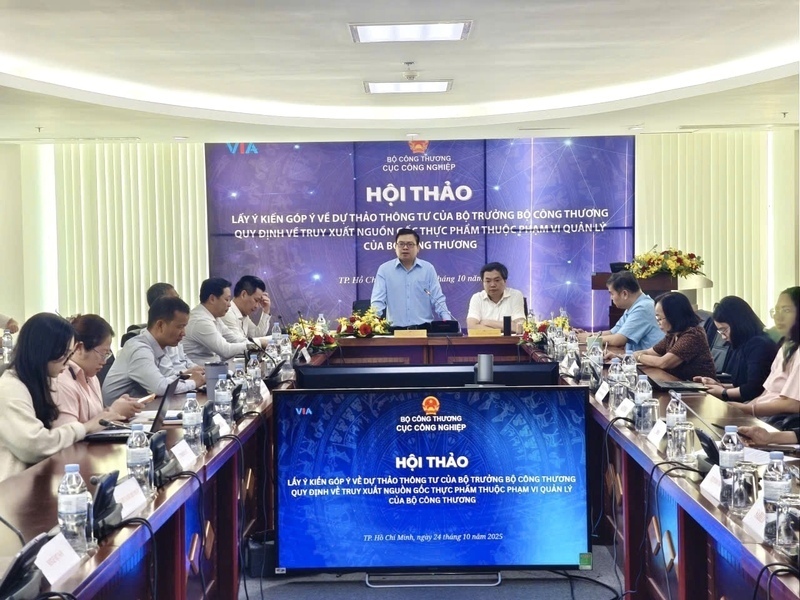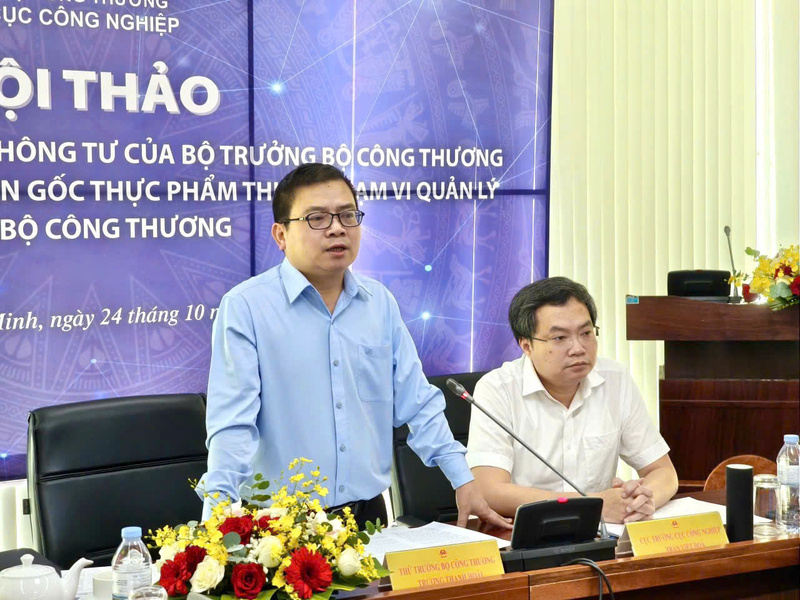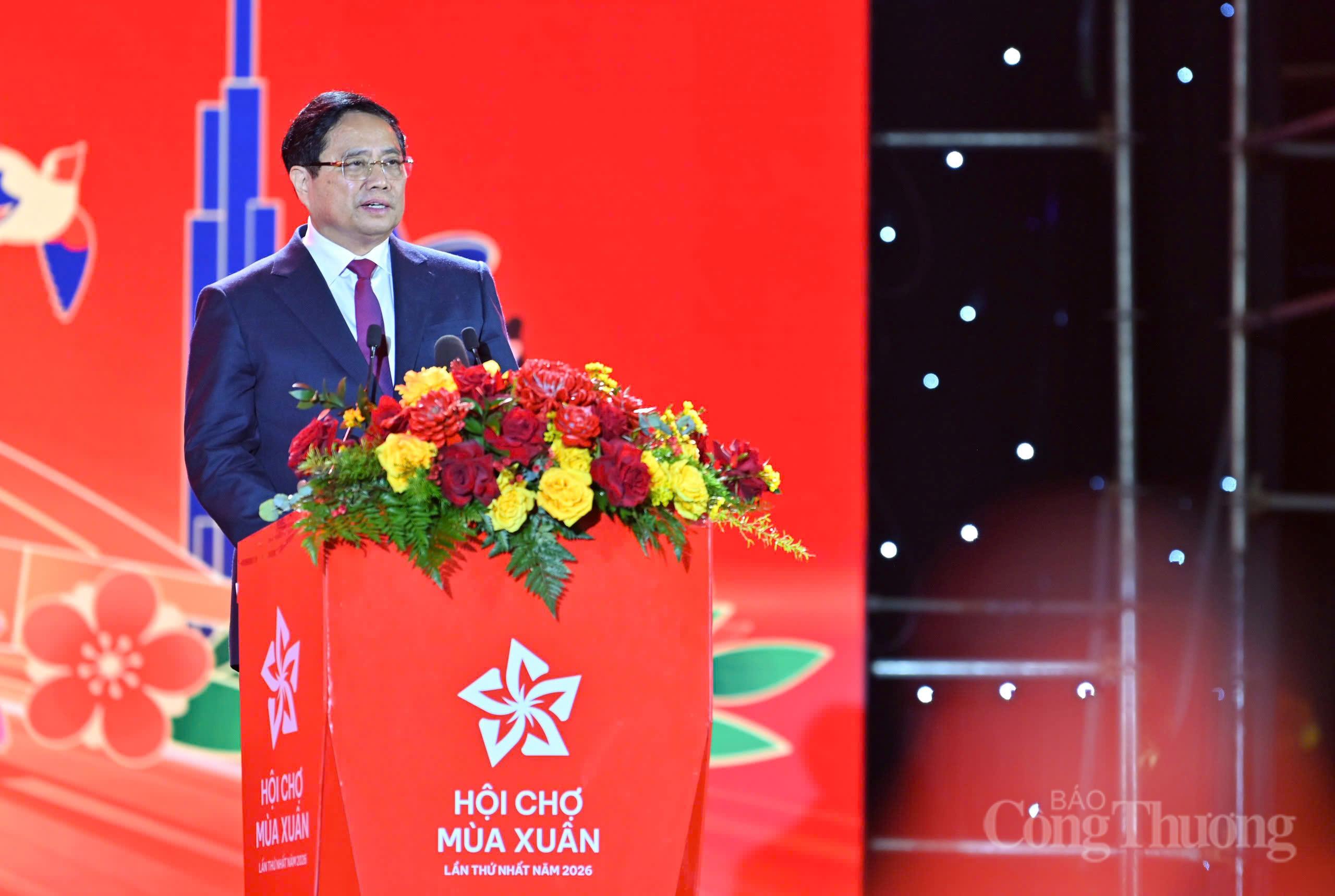
Vietnam ready to deepen comprehensive cooperation with the US
19:05 | 23/03/2025 08:30 | 15/02/2026News and Events
Deputy Minister of Industry and Trade Truong Thanh Hoai attended and chaired the event, which gathered representatives from the Industry Agency, relevant authorities, business associations, and enterprises.

An overview of the discussion.
Establishing a new legal framework
Speaking at the opening session, Director General of the Industry Agency Tran Viet Hoa said that the workshop was held in line with the Law on the Promulgation of Legal Documents and the MoIT’s working plan, aiming to gather broad public comments on the draft Circular regulating food traceability under the Ministry’s management scope.

Deputy Minister of Industry and Trade Truong Thanh Hoai speaks at the meeting.
“This is an important legal document that institutionalizes the Party’s guidelines on food safety and digital transformation, while establishing a unified, mandatory legal framework for food traceability through a centralized electronic system”, Tran Viet Hoa emphasized.
Given the draft’s significant impact, he stressed that collecting opinions from affected stakeholders is a vital step to ensure the feasibility and effectiveness of the regulation once it takes effect.
In his address, Deputy Minister Truong Thanh Hoai affirmed that food safety is a critical issue directly related to public health, and it has always been a priority of the Party and the State. However, counterfeit and untraceable goods continue to pose serious challenges, harming legitimate businesses and threatening consumers’ well-being.
To address this, the MoIT has developed the draft Circular with the goal of transforming management methods, from dispersed and paper-based processes to a centralized, mandatory, data-driven model built on digital platforms.
A tool to strengthen competitiveness
According to Deputy Minister Hoai, the new system will enable a shift from reactive, manual management to proactive prevention through real-time data. It will serve as an essential tool to protect consumers, foster a transparent and fair business environment, and enhance the competitiveness of Vietnamese goods.
“This transition is not only a domestic management requirement but also a prerequisite for accessing major export markets such as the EU, the US, and Japan, where technical barriers are increasingly strict. Implementing a unified electronic traceability system means we are, in essence, creating a digital passport for Vietnamese products to reach global markets,” he noted.
Acknowledging potential challenges for enterprises, particularly in terms of technology readiness and initial costs, the Deputy Minister explained that the draft introduces a phased roadmap, taking into account business scale, from July 2026 to January 2027. It also includes support policies on technology and training to ensure a smooth transition.
The workshop featured two main discussion sessions: sharing practical experiences and contributing feedback on the draft Circular; and analyzing technological solutions, compliance costs, and implementation roadmap.
Participants discussed and provided constructive comments on four key aspects: the feasibility of product identification and event-based traceability updates; technological requirements (dynamic QR codes, RFID, NFC) and enterprise readiness; implementation roadmap; and data security and compliance costs.
The drafting committee also recorded a wide range of practical suggestions, which can be summarized into several key concerns, the roadmap for small enterprises, technology-related expenses, data protection, and the need for specific support mechanisms.
According to Deputy Minister Truong Thanh Hoai, food safety is a critical issue directly linked to public health. In the current context, the Party and the State have attached special importance to this matter.
Directive No. 17 of the Party Secretariat underscores the key task of ensuring “clear and verifiable traceability,” while Resolution No. 57 of the Politburo sets an urgent requirement to accelerate digital technology adoption and develop national data platforms to modernize state management.

19:05 | 23/03/2025 08:30 | 15/02/2026News and Events

19:05 | 23/03/2025 08:25 | 15/02/2026News and Events

19:05 | 23/03/2025 16:44 | 14/02/2026Tourism

19:05 | 23/03/2025 16:33 | 14/02/2026Home Page

19:05 | 23/03/2025 16:32 | 14/02/2026Trade